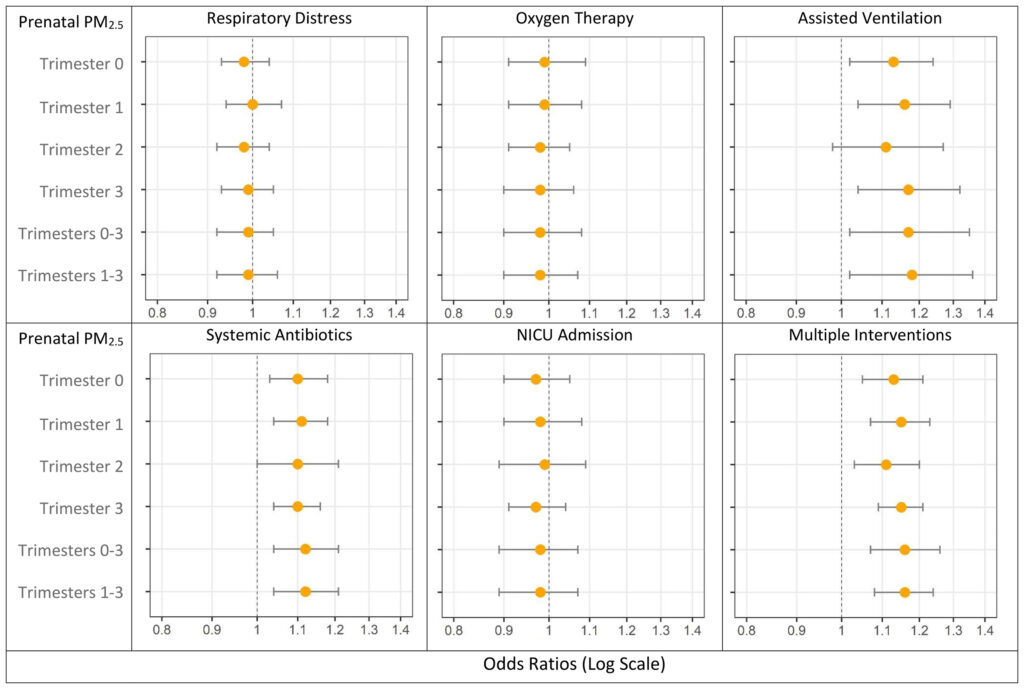A new study from Canada has found that prenatal exposure to PM2.5 increases the chance of severe respiratory distress in term newborn babies (severe respiratory distress includes needing a ventilator, antibiotics, or multiple interventions (for example, both a ventilator and antibiotics)). The researchers found an increased chance of 12-17% for the newborn baby needing a ventilator, needing antibiotics, or needing multiple interventions, for every 1 mcg/m3.
The researchers looked at 2,000 pregnant women in 10 cities in Canada, and compared PM2.5 before they were pregnant and in each trimester of pregnancy.
The study did not find that an increase from PM2.5 in respiratory distress, need for oxygen, or admission to the NICU (neonatal intensive care unit).
This study shows the need for strong standards, to protect the health of the most vulnerable babies. It shows why EPA should set the new standard to be as strong as possible, to fully protect pregnant people and the newborns who are born after being exposed while the mother is pregnant.
And remember that exposure to air pollution in the U.S. is not even, and that because of our historical policies of housing discrimination and other historical and ongoing polices that affect where we built highways, factories, and polluting industries, black and brown communities are more exposed to air pollution. Setting strong standards will help somewhat to reduce exposure, though other measures are needed for communities with multiple sources of air pollution.
Read the scientific study in Environmental Health Perspectives here.
Read a press release about the study here.
Read a news story about the study here.
2-1-2024
Post by Anne MB





